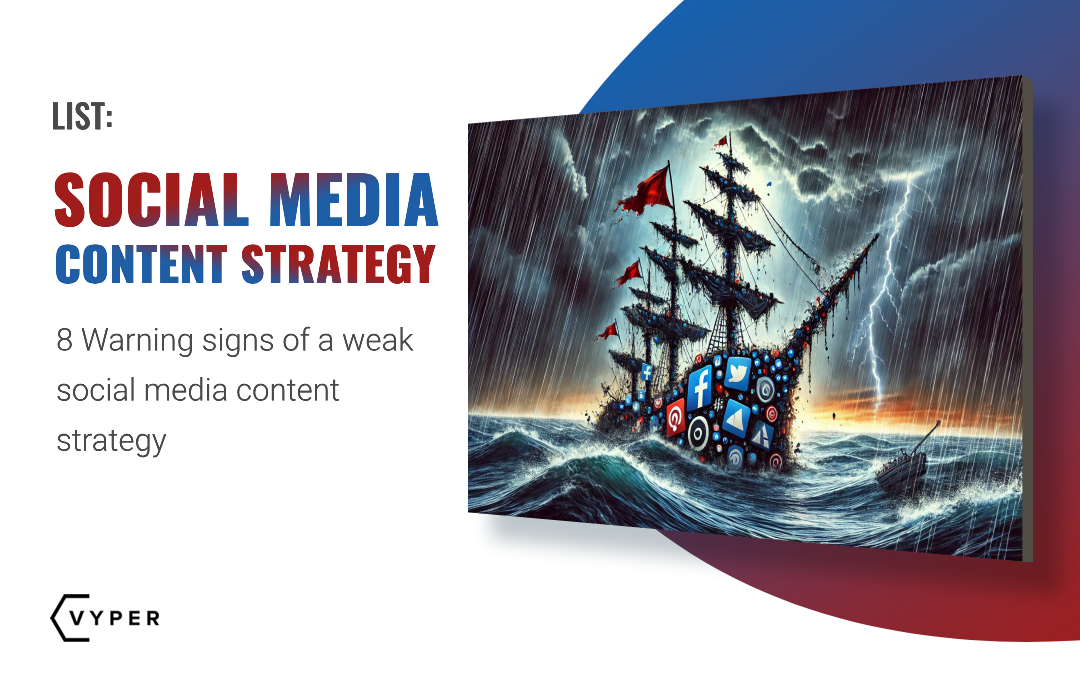Content marketing is one of the best ways to attract leads. Unfortunately, every business owner is aware of this fact. That’s why virtually all online businesses run a blog today. This can make it really hard to stand out. But not if you come up with a unique approach.
Unique content can help you stand out from everyone else. And when you have great content, you can build your brand authority and attract more leads. These can translate into more customers for your business.
This review will take you through eight exciting content ideas for a small business. Let’s jump right in:

FREE DOWNLOAD: Get all Our Contest & Giveaway Marketing Guides, Checklists, and tutorials that have helped 100’s of brands collect 15k+ emails in under 21 days!
1. Create The Best Video Content
There’s no way to talk about content ideas for a small business without talking about video content. Just think about it. TikTok has exploded in popularity recently, while YouTube is one of the world’s largest search engines, with over 14 billion monthly searches.
The image below shows that consumers watch an average of 19 hours of video content weekly, nearly double the 10.5 hours of screen time recorded in 2018.

According to statistics, 92% of marketers agree that video is integral to their marketing.

When starting a business, you want people to see all the passion and hard work that went into getting it off the ground. And nothing conveys that better than real-life footage of you talking about your experience and how your business has changed people’s lives.
For example, the fitness business Walk at Home uses YouTube video content to complement its app-based content. The result? A YouTube following of over 4 million.

That’s not to say you should only use video for YouTube. You can also upload video content on social media, your website, and other platforms to market your business.
Video Creation Tips
So how do you win at being a video creator as a business owner? There are three video creation tenets to live by:
- Focus on a particular niche. One of the top six mistakes that hinder businesses is not developing an ideal client persona. Create your persona and create video content tailored to that particular persona.
- Emphasize your unique value. What sets you apart as a business? Focus on this.
- Amplify the outcomes that you help people achieve. Ultimately, your brand’s goal should be to have satisfied and loyal customers tell their family and friends about you.
You have to pick the right thumbnail for your video too. Your thumbnail is the first thing viewers see. They won’t click on your video content if the thumbnail and caption aren’t interesting enough.
Another thing to pay attention to is the quality of your videos. Your videos will come out better with adequate lighting. Make your videos interactive and relatable, too.
Finally, and equally important, optimize the heck out of your content. You know how important it is to create an effective SEO strategy for written content. It’s just as important for video content.
2. Run a Contest
It takes time and effort to grow your following organically. That’s why some businesses consider buying Instagram followers or creating viral and interactive contests.
Contests create strong engagement. Don’t believe me? Look at the figures. Instagram contests will get 3.5 times as many likes as regular Instagram posts and 64 times as many comments.

The benefits are numerous, from getting your subscribers to share the content and making it go viral to developing a community loyal to your brand.
So how do you set up a contest effectively?
Here are the steps to take:
- Start with a specific goal: These goals should be relevant to your audience on their journey. Focus on these.
- Provide clear instructions for the participants: Make it clear what your followers are supposed to do to participate in the contest. For example, are they supposed to share a specific post and follow you? Or should they tag a friend in the comments?
- Offer a valuable prize: You need to incentivize your viewers to participate in your contest. So, your prize should have a clear value. You can ask your viewers what prize they’d like you to offer in your contest before launching it.
Don’t forget to give your contest a timeframe. You can’t be running your contest forever. Participants should know they have a deadline to meet when submitting entries.
3. Leverage User-Generated Content
User-generated content is any content created by your product or service users. It can be in the form of reviews, photos, videos, blog posts, etc. Apart from the fact that they help you fill your content calendar if you run out of content ideas, they also serve as social proof.
Remember, 91% of online shoppers read reviews before making a purchase. This means people care about other people’s experiences with brands. So user-generated content may be the incentive you need to increase your conversion rate.
Glossier, for example, uses user-generated content to launch and establish a new product. That motivates users to request additional products, which boosts sales.

Repurposing User-Generated Content is a great way to engage your audience and create a more cohesive, unified brand image.
Here are some ways to repurpose User-Generated Content:
- Use it as an anchor for your website or an email campaign.
- Create an infographic out of it.
- Turn it into a video ad that users can share on social media.
Doing this will help you build strong brand awareness and a community.
4. Share Short Tips Or Tricks
Giving tips and tricks to your customers is an opportunity to show off how much you know about your industry. This boosts trust in the quality of your product or service. And it helps you create stronger relationships with your customers.
The tips can come from blog posts, videos, podcasts, and other mediums.
For example, a restaurant can provide information about how to eat healthily and lose weight, or a clothing store can tell customers how to clean their clothes properly so they last longer.
It’s important to know what kind of information you’re trying to convey and how you want your audience to learn that information. That will help you choose the right tool for the job.
Here are some tips for giving helpful product or service-related tips:
- Ensure the tip is relevant to the customer’s interests.
- Ensure the tip has some actionable content. It should be something a person could do with the information in your tip.
- Don’t use technical jargon or buzzwords. Keep it simple so your customer can understand it without needing any help.
For instance, Mejuri provides a section with tips on how to wear jewelry.

Describe each product or service, including why it’s important, how it works, where it’s made (if applicable), etc. Also, include examples of how the product has helped other customers.
That will build a strong relationship with your customers, helping them make an educated decision when purchasing from you. It also cultivates brand loyalty.
5. Share A Calendar Of Events
When running a business, keeping your customers engaged and informed about the latest news and events is essential. You can easily create a calendar of events for your business. This will help your customers know what is going on in your business and allow them to participate in any event you are hosting.
Your event can be live-streamed concerts, product launches, or celebrity appearances at local events. In addition, you can create and publish a content calendar using tools such as Eventable or Calendly.
Here are some tips for how to share a calendar of events:
Share events from your personal life and the business side of things. You want people to feel like they’re getting an inside look at who you are, so ensure there are plenty of personal and work-related events on there.
Don’t be afraid to share some fun stuff too. It’s essential not only to share serious things like birthdays and anniversaries but also things like going out with friends or celebrating holidays together as a family. People love seeing pictures of the personalities behind the brands they love.
Whatever content strategy you select, ensure you stick to your published content schedule. If you cannot meet your deadline, you should notify your audience. This shows you appreciate and care about them, developing respect and trust.
6. Create Q&A Sections
Q&A sections are a great way to create content and one of our favorite content ideas. They can be used to answer questions about your business and its offerings or provide information about a topic that is relevant to your audience.
Klair’s Cosmetics created a Q&A session page to present the brand and educate clients about it.

Interview your customers to know your audience better, visualize their journey more accurately, and understand the pain points and frustrations that need to be addressed. You can then use this knowledge to develop better, more focused Q&A content.
Moreover, you can use the insights to create blog posts, videos, and infographics that complement your answers. This will make it easier for your audience to visualize what you’re talking about.
Here are some tips for adding Q&A sections to your content marketing strategy:
- Ask questions that people are likely to ask: Identify what questions you think people will ask about your company and its products/services. For example, if you’re an IT company, you might ask questions like “What is cloud computing?” or “What is the difference between cloud computing and traditional hosting?”
- Use open-ended questions: Open-ended questions are better than closed-ended ones because they allow people to express their thoughts and opinions without being forced into a specific answer (which can lead them away from what they want to say). For example: “What do you think makes a good IT manager?” vs. “Do you think good IT managers work well with other teams?”
- Use natural language processing: Natural language processing (NLP) can help identify keywords that people might use when searching online for information about your brand or industry. This can be instrumental in supporting your SEO efforts.
Keep in mind that you can create a Q&A section answering general questions related to your brand and another section for specific pages. For example, you could have a Q&A section for a particular landing page.
7. Run Facebook ads
Facebook ads are marketing gold. If you aren’t using them, now’s the time to do it. Facebook has nearly three billion monthly active users and was estimated to reach 3.59 billion in 2021.

Additionally, Facebook ads can be shown on Instagram, increasing the potential reach.
You can hit two birds with one stone when you optimize Facebook ads. First, you can engage your viewers with your content and make official announcements.
You can even use ads to promote your lead magnet or a free trial. Make sure the Facebook ads are relevant to your users’ journey. Use eye-catching images and send a clear message. Don’t forget your call to action. It needs to be concise and easily understandable.
8. Expert Interviews
The last on our list of content ideas are expert interviews. Expert interviews are a great way to generate blog content and social media content. They allow you to leverage the expertise of other people in your industry. In addition, they’re a great way to get ahead of the competition by sharing quality information with your readers.
To get started, find an expert in your industry willing to be interviewed. This person should have a lot of experience and credibility in their field.
Then, reach out with a list of questions, so they know what you want them to talk about. Ask open-ended questions so the expert may share their knowledge and experience.
The more specific you are, the better because you’ll get more relevant information from your expert. You can ask them about their experience with the topic, how they’ve seen it develop over time, or what they would advise someone else starting out in the same field.
Record the conversation—either by taking notes or recording it as audio or video—and transcribe it later so that all the information is captured accurately. If feasible, conduct a video interview so that you can repurpose it for different channels such as social media, blog, email, etc.
Bonus: How Laura Haleydt Creates Content for Instagram
Laura Haleydt uses Instagram to generate leads and sales. She also has an excellent passive income business on Instagram.
Laura achieves all this through the content she shares on Instagram. The interview below has some excellent content ideas and tips that will certainly inspire you.
In Closing: 8 Content Ideas
Creating quality content can be a game changer for fitness businesses looking for growth. Good content helps you attract an audience and then build a connection with them. You can build authority with great content, too. Ultimately, these can translate into sales.
What types of content can you create? You learned eight content ideas for a small business from this article. Use videos, run contests, and leverage social proof. You can also share tips or tricks, run Facebook ads, create Q&A sections, and interview thought leaders in your field.
Follow these clever content ideas to stand out as a business, and you’ll reap the benefits in no time.

About The Author
Austin Andrukaitis is the CEO of ChamberofCommerce.com. He’s an experienced digital marketing strategist with many years of experience in creating successful online campaigns.
Austin’s approach to developing, optimizing, and delivering web-based technologies has helped businesses achieve higher profit, enhance productivity, and position organizations for accelerated sustained growth.
Jack Paxton is the co-founder of VYPER, a marketing tool that helps brands build email lists, social followings, and revenue using viral giveaways, referral, and reward programs. After millions of dollars spent testing different marketing strategies at his marketing agency. He then also co-founded Hyax a fast, conversion & design-focused course and funnel builder for creators.




Thank you for sharing…
Hello, Thank you for post.
You Are Welcome
Its a pleasure!
It’s a pleasure. I am glad you enjoying the blog.
I’m thrilled to hear that you found the article on content ideas to be a valuable resource for businesses. Creative and engaging content is indeed essential for standing out in the digital landscape, and implementing these suggestions can make a significant difference in captivating your audience. If you have any more questions or need further assistance with content creation or any other topic, please feel free to ask. Your positive feedback is greatly appreciated!
Your article was truly insightful! I particularly appreciated your in-depth analysis of the topic, and the practical tips you provided are going to be very useful for my own endeavors. Thank you for sharing your expertise!
Hey This is my first visit to your blog . i really appreciate the way you explained it ,Well done. Thanks for sharing
This article on content ideas is a goldmine for businesses looking to stand out in a crowded digital landscape. From unique storytelling approaches to interactive and visually engaging formats, the suggestions provided are both creative and actionable. Implementing these ideas is sure to make your business shine and captivate your audience. Well done!
Hi Jack, love the article, this looks very informative.
Thanks for sharing this.
That was really helpful
thanx was writing such an amazing and helpful article
From informative guides and tutorials to engaging storytelling and user-generated content, these creative approaches will enhance your brand’s visibility, build trust, and leave a lasting impression. Elevate your content strategy and make your business shine with these unique ideas.
Thank For Sharing these ideas.
very and Helpful blog ‘Create informative and educational blog posts that provide value to your target audience.
Share user-generated content to showcase real experiences with your brand and encourage engagement.
Use video content, such as tutorials or product demos, to visually engage and inform your audience. Other content ideas include infographics, podcasts, case studies, and social media posts that highlight your brand’s unique personality and voice.
This is a great post with some useful content ideas for any marketer. I especially liked the idea of creating viral giveaways and contests using VYPER. I have seen some impressive case studies of how brands like Waiakea, Foundr, and Coconut Bowls have used VYPER to grow their email lists, social followers, and revenue. I think this is a smart way to leverage the power of word-of-mouth and social proof. Thanks for sharing these tips and examples!
really great ideas for growing a business.
Thank you so much for offering such creative content, you have inspired me. I will read your other articles with interest. Please keep writing.
Thanks for giving me this information. It is beneficial to me, so keep doing well.
very impressive. Glad to read the content